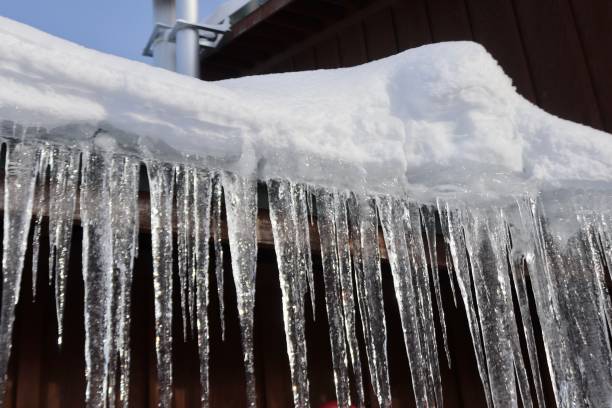What are your opinions about 6 Ways to Prevent Frozen Pipes?

Winter can damage your plumbing, particularly by freezing pipelines. Right here's how to prevent it from taking place and what to do if it does.
Introduction
As temperature levels drop, the threat of icy pipelines boosts, possibly causing costly repair work and water damages. Comprehending just how to avoid frozen pipelines is vital for homeowners in chilly environments.
Recognizing Frozen Pipelines
What causes pipelines to freeze?
Pipes freeze when revealed to temperature levels below 32 ° F (0 ° C) for extended periods. As water inside the pipelines ices up, it increases, taxing the pipeline walls and potentially triggering them to rupture.
Dangers and damages
Frozen pipes can bring about supply of water disruptions, building damages, and costly repair services. Burst pipes can flooding homes and cause extensive architectural damage.
Indicators of Frozen Water Lines
Determining icy pipes early can stop them from rupturing.
How to determine icy pipes
Look for reduced water circulation from faucets, unusual odors or sounds from pipes, and noticeable frost on revealed pipelines.
Prevention Tips
Shielding vulnerable pipes
Wrap pipes in insulation sleeves or utilize warmth tape to shield them from freezing temperatures. Focus on pipes in unheated or exterior areas of the home.
Heating techniques
Keep interior spaces effectively heated up, particularly areas with plumbing. Open up closet doors to enable warm air to flow around pipelines under sinks.
Securing Outside Plumbing
Yard tubes and outside faucets
Separate and drain pipes yard hose pipes prior to winter season. Mount frost-proof spigots or cover exterior faucets with protected caps.
What to Do If Your Pipelines Freeze
Immediate actions to take
If you think frozen pipelines, keep faucets open to ease pressure as the ice melts. Use a hairdryer or towels taken in hot water to thaw pipes gradually.
Long-Term Solutions
Structural modifications
Consider rerouting pipes far from outside walls or unheated areas. Include added insulation to attics, basements, and crawl spaces.
Upgrading insulation
Purchase high-quality insulation for pipes, attics, and walls. Appropriate insulation aids keep regular temperature levels and reduces the risk of icy pipelines.
Final thought
Protecting against icy pipes needs positive procedures and fast responses. By understanding the causes, indicators, and safety nets, homeowners can safeguard their pipes throughout cold weather.
Helpful Tips to Prevent Frozen Pipes this Winter
UNDERSTANDING THE BASICS: WHY PIPES FREEZE AND WHY IT’S A PROBLEM
Water freezing inside pipes is common during the winter months, but understanding why pipes freeze, and the potential problems it can cause is crucial in preventing such incidents. This section will delve into the basics of why pipes freeze and the associated problems that may arise.
THE SCIENCE BEHIND FROZEN PIPES
When water reaches freezing temperatures, it undergoes a physical transformation and solidifies into ice. This expansion of water as it freezes is the primary reason pipes can burst. As the water inside the pipe freezes, it expands, creating immense pressure on the walls. If the pressure becomes too great, the pipe can crack or rupture, leading to leaks and water damage.
FACTORS THAT CONTRIBUTE TO PIPE FREEZING
Low Temperatures: Extremely cold weather, especially below freezing, increases the risk of pipes freezing. Uninsulated or Poorly Insulated Pipes: Pipes located in unheated areas, such as basements, crawl spaces, or attics, are more prone to freezing. Insufficient insulation or lack of insulation altogether exacerbates the problem. Exterior Wall Exposure: Pipes running along exterior walls are susceptible to freezing as they encounter colder temperatures outside. Lack of Heating or Temperature Regulation: Inadequate heating or inconsistent temperature control in your home can contribute to frozen pipes. PROBLEMS CAUSED BY FROZEN PIPES
- Pipe Bursting: As mentioned earlier, the expansion of water as it freezes can cause pipes to burst, resulting in significant water damage.
- Water Damage: When pipes burst, it can lead to flooding and water damage to your property, including walls, ceilings, flooring, and personal belongings.
- Structural Damage: Prolonged exposure to water from burst pipes can compromise the structural integrity of your home, leading to costly repairs.
- Mold and Mildew Growth: Excess moisture from water damage can create a favorable environment for mold and mildew growth, posing health risks to occupants.
- Disrupted Water Supply: Frozen pipes can also result in a complete or partial loss of water supply until the issue is resolved.
WHY CERTAIN PIPES ARE MORE PRONE TO FREEZING
- Location: Pipes located in unheated or poorly insulated areas, such as basements, crawl spaces, attics, or exterior walls, are at higher risk of freezing.
- Exterior Pipes: Outdoor pipes, such as those used for irrigation or exposed plumbing, are particularly vulnerable to freezing as they are directly exposed to the elements.
- Supply Lines: Pipes that carry water from the main water supply into your home, including the main water line, are critical to protect as freezing in these lines can affect your entire plumbing system.
- Underground Pipes: Pipes buried underground, such as those connected to sprinkler systems or outdoor faucets, can be susceptible to freezing if not properly insulated.
https://busybusy.com/blog/helpful-tips-to-prevent-frozen-pipes-this-winter/

Hopefully you liked our topic about Winter Plumbing Precautions: Preventing Frozen Pipes. Thanks a lot for taking a few minutes to read through our blog. Appreciated our entry? Please share it. Let another person locate it. Kudos for being here. Come back soon.
Free Estimate